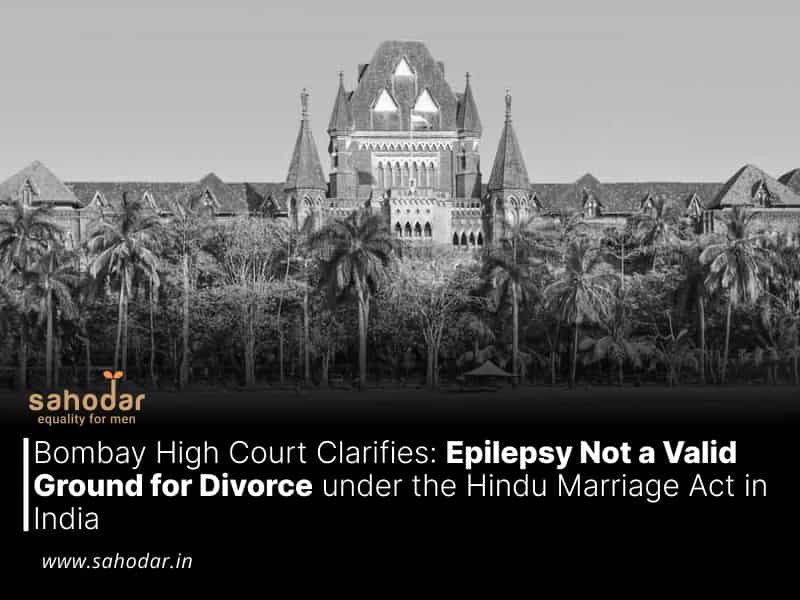“The condition of epilepsy is neither an incurable disease nor can it be considered a mental disorder or a psychopathic disorder, for making a ground under Section 13(1)(iii) of the Hindu Marriage Act,” the Court held.
In a notable legal precedent, the Bombay High Court has affirmed that the presence of epilepsy in a spouse cannot constitute valid grounds for seeking divorce under the provisions of the Hindu Marriage Act of 1955. This significant judicial pronouncement emanates from the case of Harish @ Roshan Karnewar vs Leelavati @ Reena Karnewar.
A divisional bench presided over by Justices Vinay Joshi and Valmiki SA Menezes rendered this verdict. Their decision upholds a prior 2016 family court judgment that rejected a husband’s plea for divorce. The petitioner contended that his wife’s epilepsy, which he categorized as an incurable ailment causing mental unsoundness, justified the dissolution of their matrimonial bond.
The husband further asserted that his spouse’s epilepsy resulted in abnormal conduct, including threats of suicide, which, in his view, precipitated the irremediable breakdown of their marital relationship. Nevertheless, the Bombay High Court remained unconvinced by these contentions, thereby setting a legal precedent.
“The condition of ‘epilepsy’ is neither an incurable disease nor can it be considered a mental disorder or a psychopathic disorder, for making a ground under Section 13(1)(iii) of the Hindu Marriage Act,” the judges held.
In this context, the bench placed its reliance on and endorsed the observations made by a single judge in the case of Raghunath Gopal Daftardar vs Vijaya Raghunath Daftardar. The divisional bench opined that while the cases were not identical, the rationale applied in that case was pertinent to the present matter.
Furthermore, the bench expressed the viewpoint that there exists substantial medical evidence supporting the notion that such a medical condition should not constitute an impediment to spouses cohabiting.
“On that count, we hold that the husband has failed to prove that the wife was suffering from epilepsy or even that, if she were suffering from such a condition, the same could be considered as a ground under Section 13(1)(iii) of the Act for claiming a decree of dissolution of marriage,” the bench held.
The Court determined that according to the assessment of a Neurologist who attended to the wife, her condition was attributed to a singular brain seizure rather than epilepsy.
“The second fact as deposed by an expert, a Neurologist by profession was that epilepsy itself is a medical condition in which a person suffering from it can lead a normal life. Thus clearly, even assuming the wife was suffering from epilepsy, this was certainly not a mental disorder or a psychopathic disorder or for that matter can be even considered as leaving her incurably of unsound mind,” the bench added.
In light of the husband’s inability to substantiate his assertion regarding his wife’s epilepsy, the Court concluded that there were insufficient grounds for establishing that he had endured cruelty or psychological distress stemming from his wife’s medical condition.
Moreover, the judges dismissed the husband’s contention regarding a suicide threat letter purportedly authored by his wife due to her “aberrant” behavior.
The Court determined that the wife had, during her testimony, adequately clarified that she had composed the letter solely under duress and coercion from her husband, coupled with the threat of eviction from her matrimonial residence.
“The wife clearly explained in her evidence under which circumstances she was made to write the note, literally under duress from the husband, and only to avoid being forced out of the matrimonial home. It is in her evidence, that on the relevant day, she was in a drunken state and threatening to put her out of their home, and for fear of being left without a home, and for the sake of her minor daughter who was hardly one year old, she wrote out the note as dictated by the husband,” the Court said.

